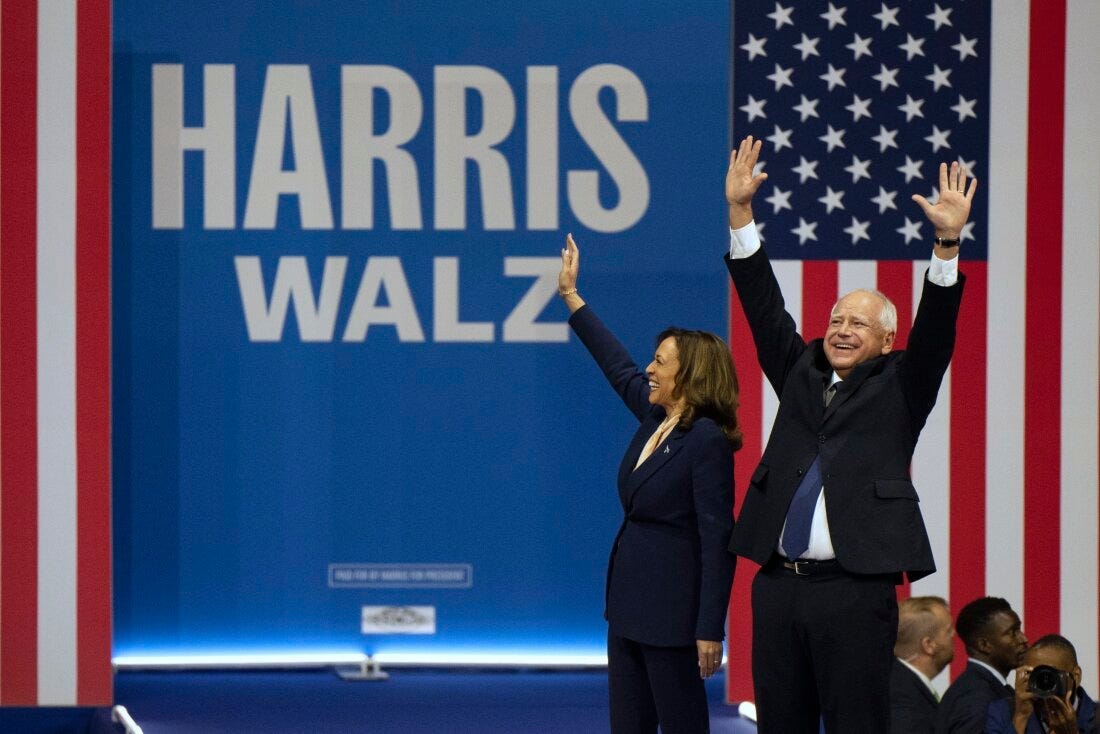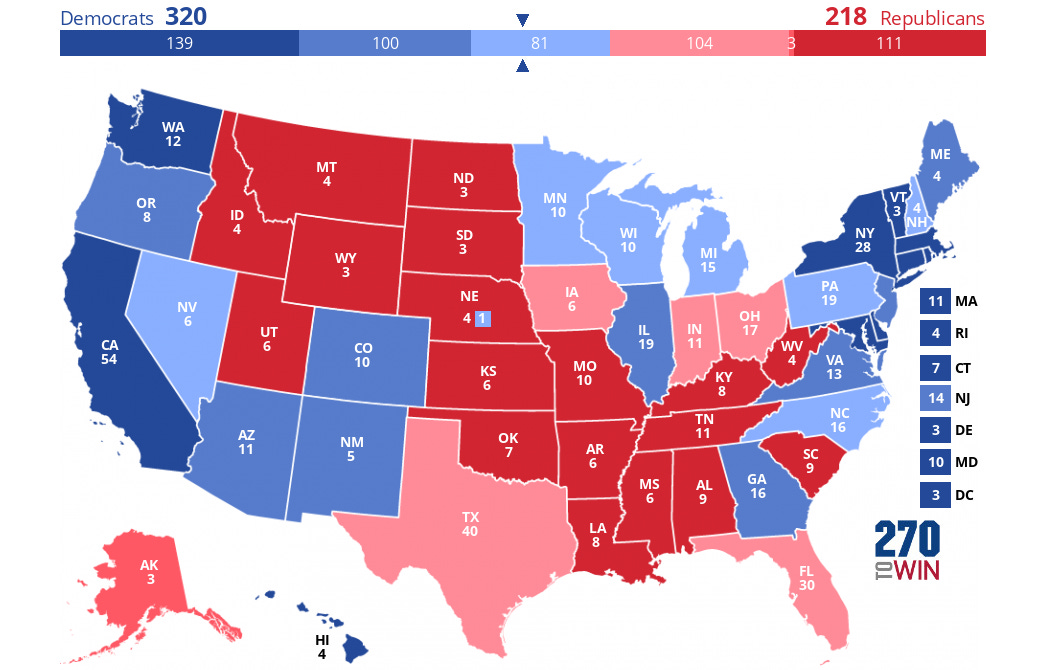The Democratic Party is Pitching a Return to Normalcy
But Is It What the People Want?
In the days following the June 27, 2024, debate between President Biden and former President Donald Trump, there was a sense of hopelessness on the Democratic side. Biden exhibited a clear decline both mentally and physically, stumbling over his words with an apparent lack of energy.
Next to him, an energetically incoherent Trump looked like a more plausible president. The alarm bells started ringing, as there were immediate calls for the president to step down from the race.
Before the debate, I thought Biden should stay in the race. In interviews and other formats, he gives coherent answers and appears by no means senile. Old men occasionally make mental mistakes, but there is nothing in this case to indicate Biden can’t do the job of president. He has also demonstrated by direct evidence that he can beat Donald Trump in an election.
But the stance I’ve come around to is that Biden can do the job of president, but not while campaigning for president. Father time must collect its debt in some way, and in this case Biden clearly cannot handle the stress of what are effectively two very arduous full-time jobs. I still believe he has been an excellent president, possibly the best foreign policy president since George H.W. Bush, and that there is no reason for him to step down from the office.
So, his decision to become the first president since Lyndon B. Johnson in 1968 to drop his re-election bid is the right one. The weeks after this decision have only confirmed my view that he is a very capable president whose 50 years of experience has taught him how to play his political cards mostly right.
The decision to drop out pre-empted a nomination fight at the DNC. His decision to quickly endorse Vice-President Harris sidelined her competition and led to a quick coalescing around the new nominee. Harris had the benefit of being shielded from a potentially bruising primary that allowed all focus to go towards defeating Donald Trump. She also could run as a fresh, insurgent candidate not necessarily burdened by the Biden administration.
The quickness and professionalism of this process indicated some degree of pre-planning, and Harris used this to quickly shift the narrative from Biden’s age to Trump’s unfitness. She also eschewed the solemness of the Biden campaign theme of saving democracy and “restoring the soul of the nation”. Dueling with Donald Trump requires a more primitive approach, simultaneously combining open defiance with school yard mockery.
Biden was not comfortable with this campaign style and mostly stayed above the fray. However, this also played into his image of being a lethargic elderly man. Harris does not have the same reluctance, and campaigns more aggrressively. In her campaign events, she goes right after Trump’s weaknesses on policy issues such as abortion and has drawn a strong contrast between herself as the prosecutor and Trump as the felon.
Trump’s uncomfortable position as a convicted criminal who is the standard bearer of the party of “Law and Order” provides an excellent line of attack, as does his general oddness and increasing incoherence on the stump. The selection of J.D. Vance as his running mate added to this strange picture, because in the past Vance has embraced Christian nationalist talking points emphasizing the family and defining “proper” gender roles.
This contrast created a perfect opening for a folksy Midwestern governor. Tim Walz was the dark horse candidate. Not even many political junkies had heard of him prior to Harris’ search for a running mate, and his cable news appearances shot him past the expected contenders, including Pennsylvania governor Josh Shapiro.
In the world of politics, rhetoric is as important as policy. Words chosen in the heat of a campaign reveal more than surface-level attacks; they can also represent a psychological strategy to frame the opponent for voters. When Minnesota Governor Tim Walz labeled the Republican ticket “weird,” he wasn’t just indulging in casual name-calling. He was shifting attention toward a plausible flaw in the Republican ticket.
It is the same strategy Donald Trump used to devastating effect in the 2016 Republican primaries and the general election. Jeb Bush was “low energy Jeb”, Marco Rubio was “Little Marco”, Ted Cruz was “Lyin’ Ted”, and of course, there was “Crooked Hillary”. These nicknames were not just childish taunts. They were based on some negative aspects of these candidate’s public perception and distilled into a slogan.
“Weird” evokes a sense of the unfamiliar, the unconventional — qualities that, when applied to political opponents, imply unpredictability and extremism. In calling the Republican slate weird, Walz is signaling to voters that his opponents are out of step with the average American’s values, and, more importantly, that they pose a risky alternative to stability.
Both members of the Republican ticket offer ample evidence to confirm Walz’s hypothesis. Donald Trump continues to post rambling, and ironically named, “Truths” on his Truth Social platform. J.D. Vance continues to have oddly phrased ideas about the role of women in society, with a particular obsession with childless women.
There’s brilliance in the simplicity of Walz’s word choice. It’s the kind of rhetoric that plays well on social media and is easily printable on a yard sign. It’s relatable, down-to-earth, and plays into a broader narrative that suggests Harris-Walz is the sensible, moderate ticket in a time when politics feels increasingly chaotic. If the voters resonate with this sentiment, it will stick — painting the Republican ticket as too far afield from the mainstream to be taken seriously.
Polling since the new Democratic ticket emerged has indicated this strategy is a success so far. A recent poll shows a 6 percentage point national leadfor Harris, a margin that would secure her all the swing states and start to turn the light red states of Florida and Texas a shade of purple. The Harris’ campaign $100 million fundraising lead over the Trump campaign would allow her to run ads in the large media markets of these two states.
However, a Harris victory is secured by winning the swing states, and it would probably be wiser to devote resources to locking down victory rather than risk defeat trying to run up the score. So far, the shift in polling has indicated the return to normalcy is a winning message. The conventional, safe approach might be the best in this case.




